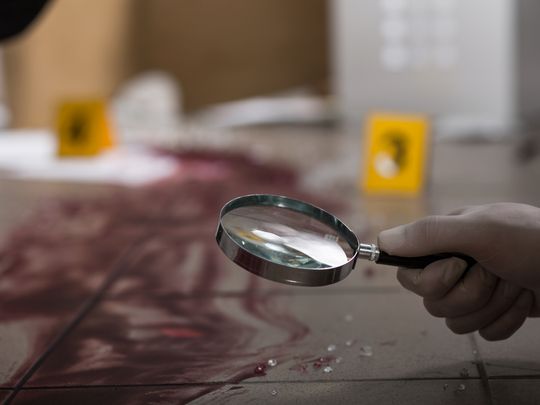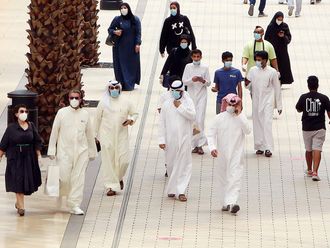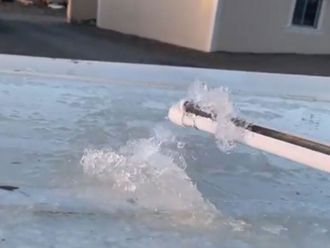
Abu Dhabi: A Guyanese man killed his Egyptian wife by hitting her on the head with a hammer at their house in Siwa, an urban oasis in Matrouh province, 50km east of the Libyan border, and 560km from Cairo, on Friday night, local media reported.
Investigations by Counselor Mahmoud Abdel Azim, the attorney general of Marsa Matrouh, revealed the man allegedly resolved and planned to kill his wife on Friday night, so that many people would offer funeral prayer to seek pardon for the deceased.
Muslims pray five times a day every day, but the most important prayer of the week is “jumah” or the day of gathering, on Friday.
The 51-year-old man reportedly admitted to killing his wife, Ghalya, 42, by hitting her on the head with a hammer, while she was asleep, after he decided to get rid of her a week before the incident, because “he was bored with her”.
The crime was discovered by a number of Siwa city’s women, when the husband asked to summon a number of them to bathe the body of the deceased, as an essential Muslim tradition and part of the funeral prayer.
The corpse is washed with the purpose to physically cleanse the deceased. Bathing the dead body is an essential ritual of the Sunnah of the Prophet (PBUH), and therefore a part of the Islamic Sharia. This should occur as soon as possible after death, preferably within hours.
But the women requested the presence of a health inspector, because they found traces of blood on the deceased’s head. The doctor reported the incident to the police.
Investigations conducted by Major Mohamed Abdel Qader, Chief of Investigations at Siwa Police Department, concluded that the deceased’s husband was behind the crime, and the health inspector decided in his report that there was a criminal suspicion behind the accident. Khaled Muslim, a lawyer, was assigned by the prosecution to attend the investigations with the accused, who allegedly confessed to committing the crime, in the presence of his lawyer.
This crime is claimed to be the first of its kind witnessed by the Siwa Oasis, which is called “the good land”. Siwa is a fertile basin, sitting about 25m below sea level and brimming with olive trees and palms, epitomises slow-paced oasis life. Set between the shady groves, squat, slouching mud-brick hamlets are connected by winding dirt lanes, where trundling donkey carts are still as much a part of the street action as puttering motorbikes and 4WDs. Scattered throughout the oasis are crystal-clear springs, which are a heavenly respite from the harsh heat.
Siwa’s geographic isolation helped protect a unique society that stands distinctly apart from mainstream Egyptian culture.








